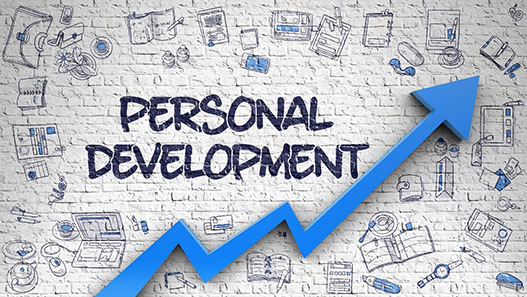Personal development is a continuous journey of self-improvement, aiming to enhance the quality of life and realize one’s potential and aspirations. Integral to this journey is the practice of reflection, a deliberate process of examining one’s thoughts, feelings, actions, and experiences. Reflection is the mirror through which we view our personal narratives, understand our choices, and discern our paths forward. This blog from Derrick Broadaway delves into the significance of reflection in personal development, offering insights into its transformative power.
Understanding Reflection
Reflection is more than mere introspection; it’s an active, purposeful examination of our experiences and actions. It involves questioning why we think, feel, and behave in specific ways and considering how we can grow from each experience. By engaging in reflection, we cultivate a deeper awareness of ourselves and our interactions with the world, leading to more mindful, intentional living.
The Benefits of Reflection in Personal Development
Enhanced Self-Awareness
The cornerstone of personal development is self-awareness. Through reflection, individuals gain insights into their personal values, beliefs, strengths, and weaknesses. This understanding is crucial for setting meaningful goals and making informed decisions that align with one’s true self.
Improved Decision Making
Reflective practices encourage critically evaluating past decisions, including successes and mistakes. By understanding the outcomes of previous choices, individuals can improve their decision-making process, avoiding past pitfalls and making choices that better serve their long-term goals.
Emotional Intelligence
Reflection fosters emotional intelligence by helping individuals recognize and understand their emotions and how they affect their thoughts and behaviors. This awareness enhances empathy and communication, crucial skills for building and maintaining healthy relationships.
Learning from Experience
Every experience, whether positive or negative, holds valuable lessons. Reflection allows individuals to extract these lessons, turning every situation into an opportunity for growth. It transforms experience into knowledge that can be applied to future challenges.
Goal Setting and Achievement
Reflection is instrumental in setting realistic, achievable goals. By regularly reviewing progress, individuals can stay aligned with their objectives, recognize when adjustments are needed, and remain motivated. Reflective practices also celebrate achievements, reinforcing the positive behaviors that lead to success.
How to Incorporate Reflection into Your Personal Development Routine
Keep a Journal
Journaling is a powerful tool for reflection. Writing about daily experiences, thoughts, and feelings can uncover patterns and insights that might not be evident otherwise. It also serves as a tangible record of personal growth over time.
Set Aside Regular Reflection Time
Make reflection a habit by dedicating a specific time each day or week for this practice. Having a set time encourages consistency, whether it’s a few minutes each night or a more extended session at the end of the week.
Ask Guiding Questions
To deepen the reflective process, ask yourself guiding questions such as:
- What did I learn today?
- How did I contribute to my goals?
- What could I have done differently?
- What am I grateful for?
Practice Mindfulness
Mindfulness meditation is a form of reflection that focuses on being present and fully experiencing the current moment. It helps develop an awareness of one’s thoughts and feelings without judgment.
Seek Feedback
Part of reflection involves understanding how others perceive us. Constructive feedback from trusted friends, family, or mentors can provide valuable perspectives we might overlook.
Reflection is not just a tool for personal development; it’s a way of life. It enriches the journey of self-improvement by fostering self-awareness, learning, and growth. By making reflection a regular practice, individuals can navigate the complexities of life with greater clarity, purpose, and resilience. In the quest for personal development, reflection is the compass that guides us toward our true north, ensuring that each step we take is intentional and informed.
